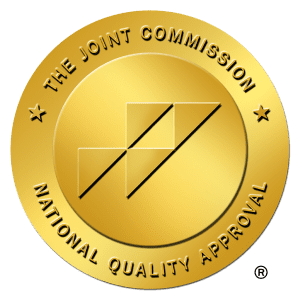At Grata we provide the most cutting edge detox services to ensure all clients are separated from All Substances using the safest and most comfortable methods.
Post Traumatic Stress Disorder
It is important to recognize the correlation between addiction and trauma so that those suffering
from either can get the help they need to cope with both.

Post-Traumatic Stress Disorder (PTSD) Facts
Post-Traumatic Stress Disorder (PTSD) is a mental health disorder that can develop following an adverse experience. It can cause individuals to experience intense fear, flashbacks, nightmares, and other intrusive thoughts and re-experienced feelings associated with the trauma. Complex PTSD (C-PTSD), or Developmental Trauma Disorder (DTD), is a form of trauma that develops over an extended period of time instead from a single event. This type of trauma is commonly experienced in situations of prolonged emotional, physical, or sexual abuse, neglect, abandonment, or severe disruption in care-giving.
Those experiencing C-PTSD often present with difficulties regulating emotions, poor self-image, extreme sensitivity to criticism, and difficulty forming intimate relationships due to persistent negative beliefs about themselves and the world. Up to 59% of young people with C-PTSD and PTSD subsequently develop Substance Use Disorders (SUDs).
Post Traumatic Stress Disorder
It is important to recognize the correlation between addiction and trauma so that those suffering
from either can get the help they need to cope with both.

Post-Traumatic Stress Disorder (PTSD) Facts
Post-Traumatic Stress Disorder (PTSD) is a mental health disorder that can develop following an adverse experience. It can cause individuals to experience intense fear, flashbacks, nightmares, and other intrusive thoughts and re-experienced feelings associated with the trauma. Complex PTSD (C-PTSD), or Developmental Trauma Disorder (DTD), is a form of trauma that develops over an extended period of time instead from a single event. This type of trauma is commonly experienced in situations of prolonged emotional, physical, or sexual abuse, neglect, abandonment, or severe disruption in care-giving.
Those experiencing C-PTSD often present with difficulties regulating emotions, poor self-image, extreme sensitivity to criticism, and difficulty forming intimate relationships due to persistent negative beliefs about themselves and the world. Up to 59% of young people with C-PTSD and PTSD subsequently develop Substance Use Disorders (SUDs).
Treatment at a Glance
Detox
Residential Care
After detox, Clients move into residential care to treat the root of the addiction and explore ways to move forward without substance abuse.
Aftercare
During you stay at Grata we create an aftercare plan tailored to each individual’s needs to maintain long lasting sobriety.

Treating Post-Traumatic
Stress Disorder (PTSD)
Treating PTSD, C-PTSD and DTD using the NeuroAffective Relational Model (NARM) is a relatively new and highly effective approach that has been gaining popularity in recent years. Our own Dr. Laurence Heller Ph.D created this modality and has trained tens of thousands of therapists in the use of this model to successfully treatment PTSD, C-PTSD and DTD. NARM™ is a therapeutic model focused on attuning with the nervous system and building core capacities missed in childhood development due to adaptive survival patterns. The evidence-based NARM approach has recently evolved into a new model for the treatment of addiction and co-occurring dysregulation NARMA™. NARMA reorganizes adaptive impulsive behaviors and works at the root of addictive behaviors and thought to create trust, connection, autonomy, aliveness and core capacities to affect positive outcomes.
“Attempts to stop any sort of self-destructive addictive behavior such as drugs, alcohol, hyper-sexuality, overeating, or overworking, often fail because it is very difficult to give up a means of self-regulation even when it is unhealthy until it can be replaced with a better form of self-regulation.”
― Dr. Laurence Heller, Ph.D, Healing Developmental Trauma: How Early Trauma Affects Self-Regulation, Self-Image, and the Capacity for Relationship. NARMA™, NARM™ Founder and Grata’s Director of Psychological Services.


NARMA™ is a gentle and collaborative approach to addiction psychotherapy that encourages clients to explore their experiences at their own pace. Grata’s therapists play a supportive role, helping clients to develop a greater sense of self-awareness, self-regulation, and self-compassion.

Treating Post-Traumatic Stress Disorder (PTSD)
Treating PTSD, C-PTSD and DTD using the NeuroAffective Relational Model (NARM) is a relatively new and highly effective approach that has been gaining popularity in recent years. Our own Dr. Laurence Heller Ph.D created this modality and has trained tens of thousands of therapists in the use of this model to successfully treatment PTSD, C-PTSD and DTD. NARM™ is a therapeutic model focused on attuning with the nervous system and building core capacities missed in childhood development due to adaptive survival patterns. The evidence-based NARM approach has recently evolved into a new model for the treatment of addiction and co-occurring dysregulation NARMA™. NARMA reorganizes adaptive impulsive behaviors and works at the root of addictive behaviors and thought to create trust, connection, autonomy, aliveness and core capacities to affect positive outcomes.

“Attempts to stop any sort of self-destructive addictive behavior such as drugs, alcohol, hyper-sexuality, overeating, or overworking, often fail because it is very difficult to give up a means of self-regulation even when it is unhealthy until it can be replaced with a better form of self-regulation.”
― Dr. Laurence Heller, Ph.D, Healing Developmental Trauma: How Early Trauma Affects Self-Regulation, Self-Image, and the Capacity for Relationship. NARMA™, NARM™ Founder and Grata’s Director of Psychological Services.

NARMA™ is a gentle and collaborative approach to addiction psychotherapy that encourages clients to explore their experiences at their own pace. Grata’s therapists play a supportive role, helping clients to develop a greater sense of self-awareness, self-regulation, and self-compassion.
Your Journey to Wholeness Begins with Only a Willingness
We’re here to encourage and support you.
Start On Your Path today!
Need Clarity? Text or Call our Admissions Team Anytime.
Your Journey to Wholeness Begins
with Only a Willingness
We’re here to encourage and support you: Start On Your Path today! Need Clarity?
Text or Call our Admissions Team Anytime.
Post-Traumatic Stress Disorder (PTSD) Symptoms
- Intrusive thoughts
- Flashbacks
- Disturbing dreams/nightmares
- Intense emotional distress
- Gripping fear or panic
- Avoidance of thoughts, feelings, or conversations related to the traumatic event
- Avoidance of activities, places, or people that remind a person of the traumatic event
- Negative mood or thought patterns
- Lack of interest in activities previously found pleasurable
- Difficulty in concentrating
- Irritability, angry outbursts, or aggressive behavior
- Heightened vigilance, exaggerated startle response
- Difficulty sleeping
Trauma can lead to addiction to help cope with the psychological distress caused by adverse early life events or current-day experiences. Additionally, trauma can lead to the use of drugs and alcohol to cope by down-regulating re-experiencing symptoms and intrusive traumatic hypervigilance, avoidance, or negative globalized thoughts. Conversely, people with substance use disorders are at an increased risk of re-experiencing traumatic events such as sexual, physical, or psychological abuse and violence.
The connection between trauma and addiction isn’t simply limited to substance abuse. It is also believed that trauma can lead to unskillful intense stimulation or restriction, such as gambling, gaming, device addiction, workaholism, codependency, sex addiction/avoidance, as well as, binge eating and other eating disorders.
It is important to recognize the correlation between addiction and trauma so that those suffering from either can get the help they need to cope with both and increase their needs and core-capacity to tolerate, connection, trust, love, vitality and positive life outcomes. At Grata, those suffering from substance dependence and trauma can get appropriate mental health, as well as substance abuse treatment, which can help individuals heal from their trauma and move towards a healthier, expansive addiction-free lifestyle.
James McNinch, LCSW, Ph.D Candidate
NARMA™ Co-Founder
Grata Clinical Director

Grata Approach to Post-Traumatic Stress Disorder (PTSD, C-PTSD)
Grata’s Dr. Laurence Heller Ph.D and Psychotherapist James McNInch, LCSW encourage and welcome your healing journey. They want you to know there’s something great within you and honor the courage it takes to seek answers and deep truths. And that someday soon there’s a great possibility you’ll reconnect to the love, beauty and wonder you have always been. The Grata Team honors your courage and the start of your adventure and are here to support you.
“When people experience relational trauma, they are generally not responding to a mortal threat. Instead, they are responding to a threat to the security of one’s sense of Self. This has profound impact on the neurodevelopment of children and self-organization. For young children, their sense of Self is dependent on their early environment. They are 100 percent dependent on their caregivers for their survival and well-being. A young child who experiences environmental failure has the lived experience that they themself won’t exist without connection and love.” ― Dr. Laurence Heller, Ph.D. The Practical Guide for Healing Developmental Trauma: Using the NeuroAffective Relational Model to Address Adverse Childhood Experiences and Resolve Complex Trauma.











Your Journey to Wholeness Begins
with Only a Willingness
We’re here to encourage and support you.
Start On Your Path Today!
Need Clarity? Text or Call our Admissions Team Anytime.
Your Journey to Wholeness
Begins with Only a Willingness
We’re here to encourage and support you. Need Clarity? Text or Call our Admissions Team Anytime.
Start On Your Path today!
